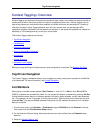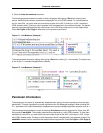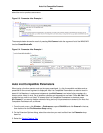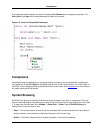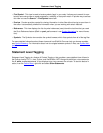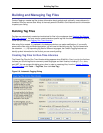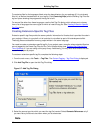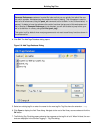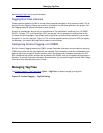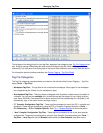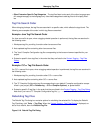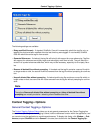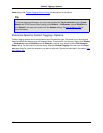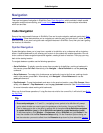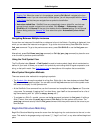
See Managing Tag Files for more information.
Tagging Run-Time Libraries
Create extension-specific tag files for include files of compiler packages or utility libraries or both. This al-
lows the Context Tagging® feature set to work for all symbols, not just those symbols in the project. Con-
text Tagging needs all symbol information to work properly.
A tag file is automatically built for the run-time libraries of C#, InstallShield, JavaScript, Perl, PV-WAVE,
Slick-C®, Tornado, TCL, and Visual Basic .NET, and usually it is not necessary to build tag files for the
run-times of these languages. If you already built a tag file for run-times during installation, you can skip
this section. If you are using Perl, Python, or TCL, and the compiler cannot be found in PATH (or registry
for Windows), you need to build tag files for these run-time libraries.
Configuring Context Tagging® for COBOL
All of the Context Tagging features for COBOL, except Parameter Information, are provided by scanning
COBOL source file and the copy books that are included. This information is used by List Members, com-
pletions, tag-driven navigation, symbol preview, and in the Outline view. Parameter Information for CO-
BOL commands and intrinsic functions are provided by the COBOL built-ins file created during product in-
stallation. To provide Parameter Information for subroutines, you must build a tag file that will hold linkage
information from the subroutine’s point of view.
Managing Tag Files
The Context Tagging - Tag Files Dialog (Tools → Tag Files) is used to manage your tag files.
Figure 5.9. Context Tagging® - Tag Files Dialog
Managing Tag Files
70



